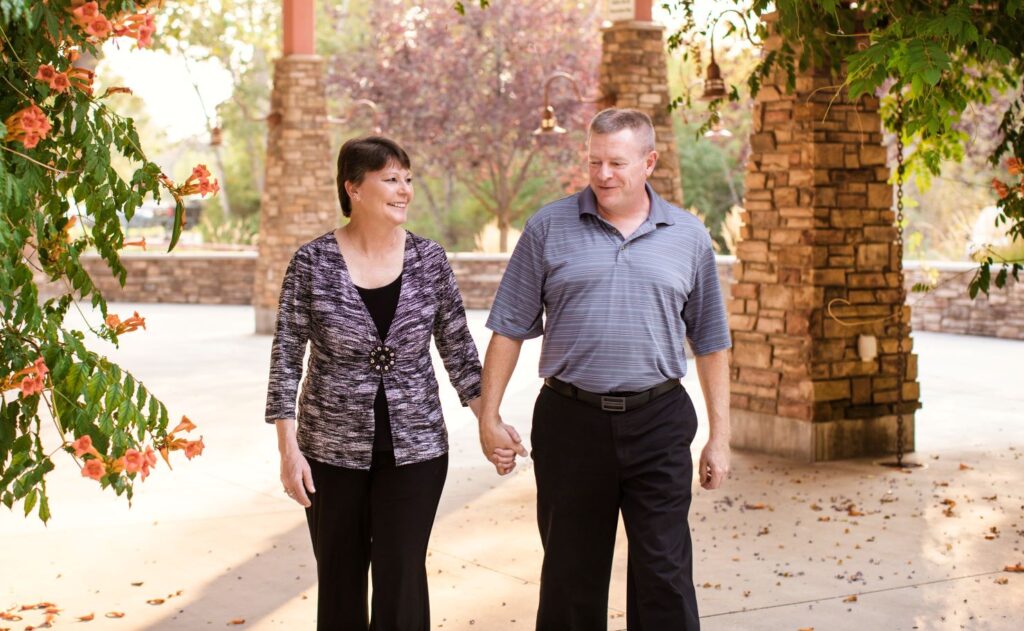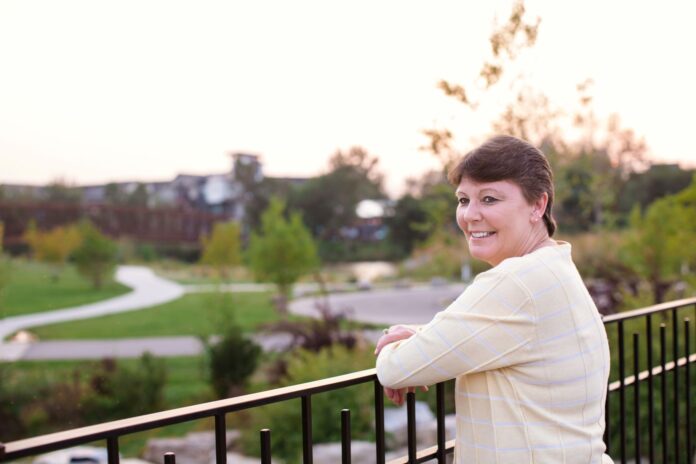By Shannon Santschi
“Stop what you’re doing and come with me. We’re going to open a savings account for you.” The year was 1985 and Dee Oldham, an Airman First Class at Myrtle Beach, South Carolina recalls this as her first lesson in managing her money, courtesy of her supervisor Senior Master Sergeant Tom Fiocca. “It really wasn’t a suggestion–more of an order, and he was as much a boss as a fatherly figure, so off we went to the bank on base.”
That day, Dee began setting aside a percentage of her monthly pay in a simple savings account. She had amassed a small sum in her savings by the time she attended the very first Smart Women Smart Money (SWSM) in Boise, Idaho in 1999. “I had been saving but knew I didn’t have the skillset to save seriously. I wanted tips on what to do to improve.”

Dee did not realize it at the time, but her attendance at the conference would mark a turning point in her life. Between workshops, Dee meandered into the lobby to visit vendor booths. Edward Jones Investments was a top sponsor that year and had a table set up on the concourse. Leslie Boson, an advisor with the firm, greeted Dee and after fielding a few questions, offered to examine her financials free of charge and obligation. “Leslie was not pushy. She was very open about fees and business operations, and I felt comfortable with her right away,” Dee recalls. She took Leslie up on her offer and the two met a few days later.
Following the meeting, Dee opened an account with Edward Jones and began investing with a focus on building a nest egg for retirement. Rather than investing in just bonds or CDs–traditionally “safer” investment options, with Leslie’s guidance, Dee diversified her portfolio to include a selection of stocks, bonds and mutual funds.
A recent Merrill Lynch study* revealed that while the vast majority of women feel as confident as men handling most financial tasks, just half of women felt confident about managing their own investments. 60% of these women attributed their lack of confidence to a lack of knowledge about investing. SWSM is helping to bridge the gap by providing women a comfortable forum to ask questions and learn from experts on topics they have wanted to probe.
Reflecting on that first SWSM event, Dee remarks: “The conference gave me a place to start–an avenue to make a difference in my life. Meeting professionals in person at the SWSM conference was so helpful. It opened my eyes to possibilities I thought I didn’t have the confidence to try, specifically, investing. It helped me become aware of the need to invest in my future and not put it off.”
Through two career changes, and marriage to the love of her life, Doug Oldham, Dee has continued investing. Last year, the Oldhams met again with Leslie. After looking over their portfolios, the three agreed that more than enough had been saved for both to take a full, early retirement. At ages 56 and 55, Doug and Dee are enjoying life with their two dogs, Jazzy and Buddy, at their home near Boise, Idaho. In addition to gardening, the couple also enjoys traveling.
According to the U.S. Census Bureau, only 13% of Americans retire at Doug’s and Dee’s ages. Because most Americans have not saved enough, half of us continue working until we are at least 61 years old. But understanding that life is short and there are memories yet to be made, Dee is an advocate for early retirement where possible. “Working is great,” she advises, “but you also need to make sure you have time to spend enjoying life while you are physically able. Plan wisely, as early as possible.”
*Women and Financial Wellness: Beyond the Bottom Line, a 2018 Merrill Lynch study in partnership with Age Wave.










